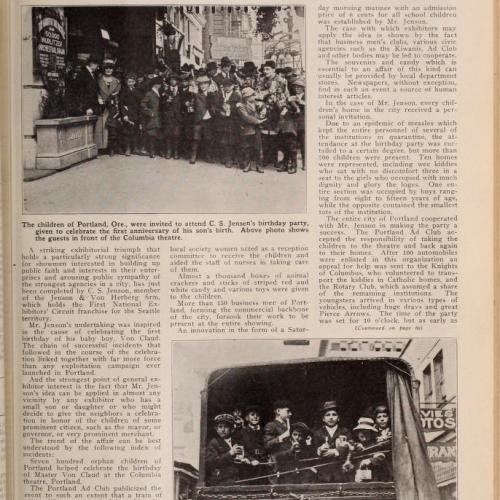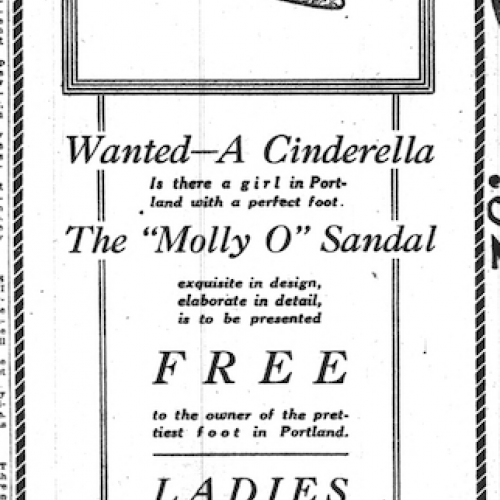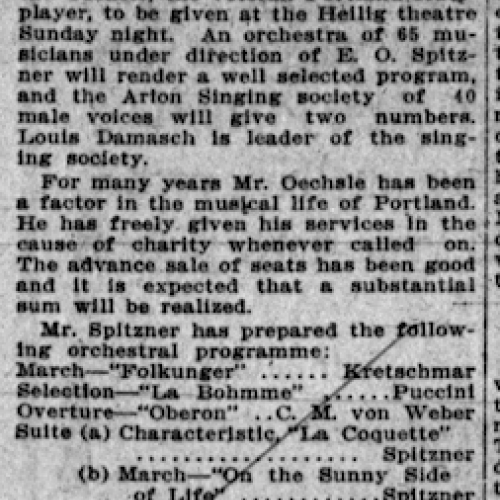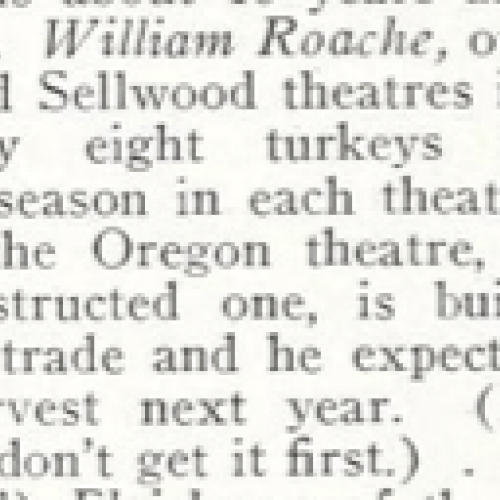It seems that quite a bit of Portland theaters during the early 20th century would organize charity programs or host public leisure events to become friendly with the community, and further research proves that a similar kind of behavior exists among the popular theater chains of today.
The Columbia theater, once located on 6th Avenue, appears to have been particularly active in the Portland community. In the Exhibitor’s Herald in June 1920, C.S. Jenson, an associate of the First National Exhibitor’s Circuit, is said to have held a birthday party for his son at the Columbia. Jenson reportedly invited 700 Portland orphan children to celebrate with him. This event not only provided entertainment for part of the underprivileged community, but it also brought the community together during the planning stage. Columbia theatre managed to work alongside Portland Drama League to pull it off, even though the League was apparently opposed to films as being entertainment for children. (Image A)
As evident in an ad from 1921, the Columbia appealed to Portland’s female community in addition to its less fortunate. The theatre partnered with Greenfield’s shoe company to do a Cinderella-inspired promotional event offering coupons. (Image B)
The Columbia, however, wasn’t the only theater that appeased locals with charity. The Heilig theater on Broadway provided an orchestral performance for attendees of a hosted event for one of Portland’s well-known musicians, flute player Gustav Oechsle. Holding Oechsle’s charity benefit at the Helig would have given the small theatre a lot of attention, and helped to spread positive word about the establishment within the community. (Image C)
In January of 1926, in a small section of the Exhibitor’s Herald, the owner of the Oregon and Sellwood theaters is written about as having donated turkeys to his patrons that contributed to his “very good trade.” William Roache’s charitable attitude during the previous year’s Christmas season earned the company wide recognition. (Image D)
Popular theater chains today host community and charity events in order to benefit specific groups while also appeasing potential customers. AMC Theaters runs several organizations that assist with large-scale disaster relief, employment outreach, and even investing in local programs through grant opportunities (according to AMCTheaters.com).
It makes sense that theaters would want to be active members of their communities because they need to be able to reach a diverse range of audiences. Establishments like the Columbia theatre and the Heilig owe at least some of their success to their charitable actions, for they provided the Portland community with more than just entertainment.



